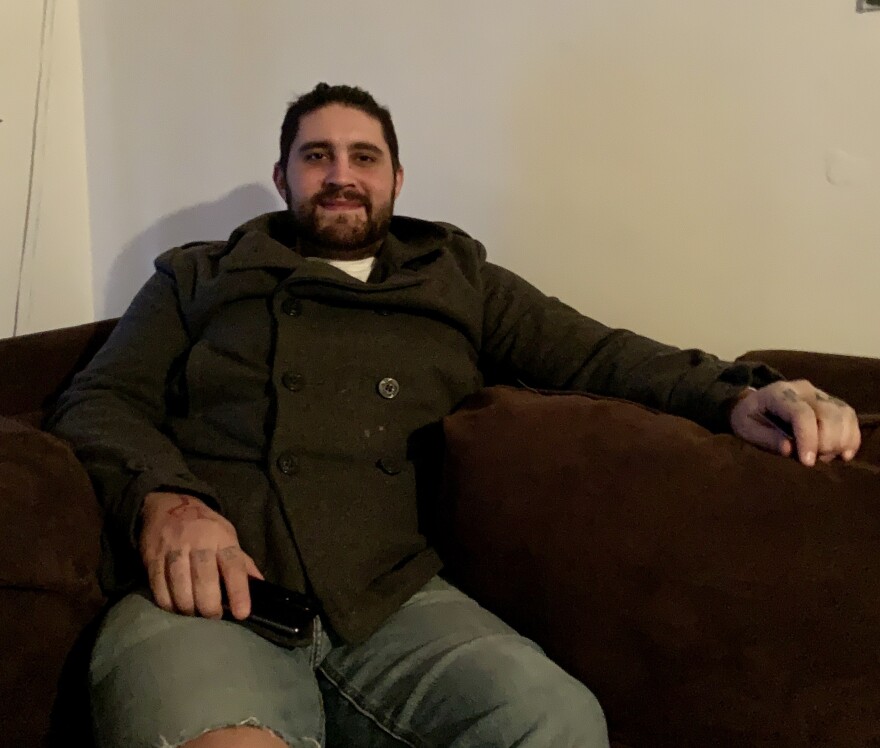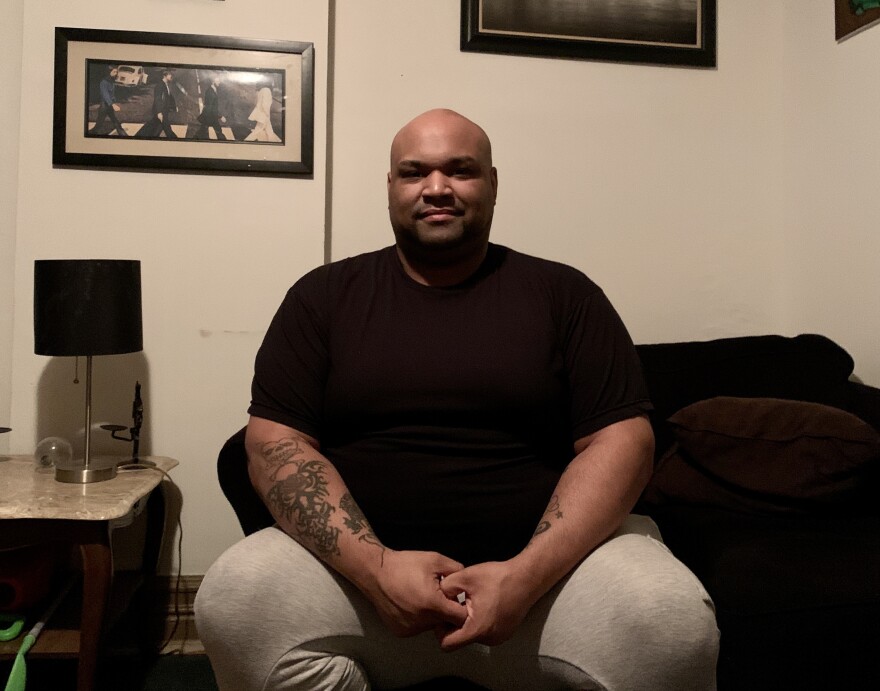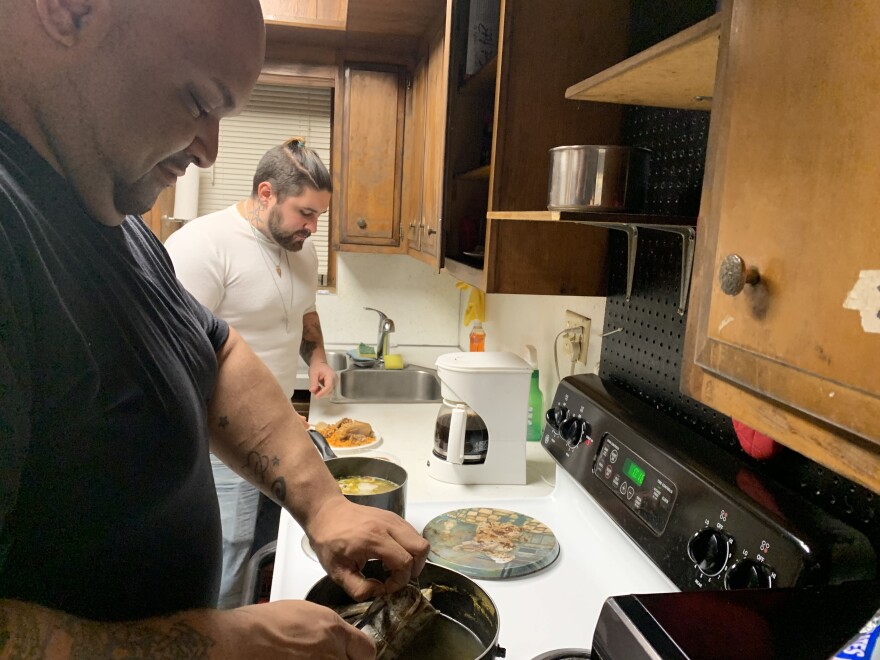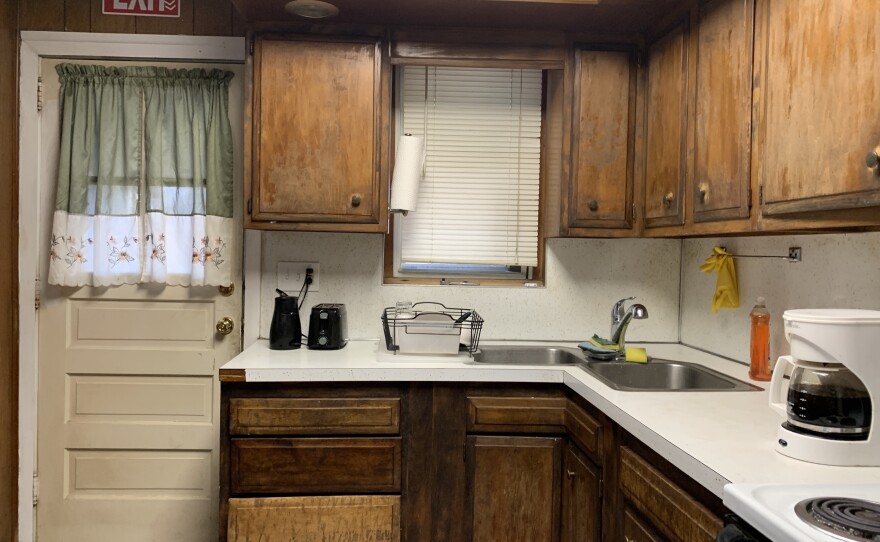SOUTH WHITEHALL TWP., Pa. — The hearings about the proposed recovery house next to Cetronia Elementary School will continue Thursday, and this time, the public likely will be able to comment on the issue.
And to give the public an idea of how a recovery house operates, Jeremy Rios, co-owner of Rios Recovery LLC, gave LehighValleyNews.com a tour of one of his facilities ahead of the hearing.
- South Whitehall residents will likely be able to comment at the next hearing for the proposed recovery house next to Cetronia Elementary
- Ahead of the hearing, the operator of the proposed recovery house gave LehighValleyNews.com a tour of an existing facility
- Three residents spoke about their journey to recovery and what they think of the recovery house.
The house, on West Allen St., is near Ramos Elementary School, and Rios said he has not had any issues with the location.
Representatives from the Allentown School District declined to comment on this issue.
The next hearing for the proposed recovery house is at 7 p.m. Feb. 9 in the township municipal building. Zoning Hearing Board solicitor Thomas Dinkelacker said previously that, unlike at other hearings, residents likely will be able to comment.
What is a recovery house?
Recovery houses are privately owned homes for people recovering from drug or alcohol addiction — typically for people exiting drug rehabilitation programs.
The facilities typically have a sobriety requirement. They can be certified by the state, but that's not required for them to be certified to operate.
All of Rios Recovery LLC’s recovery houses are certified or in the process of getting certified. Rios said he plans to get the proposed recovery house certified, as well.
Unlike halfway houses, which are state-funded, recovery houses are privately owned and residents have to pay rent. Halfway houses also often provide counseling, and recovery houses do not, although many recovery houses require their residents to go to outpatient care.
The applicant for the proposed recovery house, Eric Moyer of Moyer Construction LLC, and his lawyer previously referred to the facility as a “sober living residence” in the filings to the board and during the first hearing, but they now refer to it as a recovery house.
The West Allen St. recovery house
Eight people live in the West Allen St. recovery house, and they are all responsible for keeping their rooms clean and making their own food. They also are assigned chores to keep the common spaces of the house clean.
The residents are not required to have a job, but if they don’t, they have to volunteer instead.
The recovery house has a house manager, who collects rent, supervises when the residents take medicine and makes sure the residents follow the rules. The house also has a team leader who assists the house manager.
Rios said he chooses who will take the positions based on who volunteers to do the job. Both the house manager and team leader are compensated with a reduction to their rent.
There is a curfew, but there are no locks on the doors to keep the residents inside. There are cameras in the common areas of the house, but Rios said he would only watch the tape if there were an incident.
The managers of the house conduct frequent urine tests to make sure the residents are not using drugs. If a resident has been using, Rios said he tries to persuade them to go back to recovery and will hold their bed while they are there.
If they refuse, he will kick them out, he said.
Rios said every resident has to have gone to rehab and voluntarily wants to continue treatment, be free of withdrawal symptoms, have committed no violent crimes or sex offenses, and be in a stable mental health condition.
Residents of the house

House manager Tom Nesfeder said he has tried to get sober three times, but was not able to until he came to the recovery house.
“You can be the strongest addict in the world about your recovery, but if you're surrounded by things that you used to do, you're going to eventually do it,” Nesfeder said.
Nesfeder said he has been sober for a year and nine months. He said he is “extremely lucky and grateful” to live in the recovery house and to be a leader to the other residents.
“I love it here," Nesfeder said. "The responsibility part of it is really good for my recovery. It helps me give back, you know, so I take pride in it.
Nesfeder said he understands the concerns South Whitehall residents have about the proposed recovery house, but he does not think the debate has been portrayed fairly.
“The way it's portrayed is that we're just putting a bunch of druggies in a house next to a school and that's not what it is at all,” Nesfeder said.
“We're all trying to live our lives and improve our lives and help each other out — become positive parts of the community.”
'Not about money'

Team leader Jamie Serrano said he came to the recovery house after he had an altercation at rehab that got him kicked out. He said a certified recovery specialist who worked there saw that it was not his fault and helped him find a place to live.
Serrano did not have a job when first got to the recovery house, but it did not turn him away.
“It wasn't about the money for them," he said. "It was more about making sure that I was able to get back on my feet.”
Serrano said he now is a year and three months sober. He has a job at a nearby Family Dollar, and recently was promoted to assistant manager.
Serrano said previously, his family would not let him see his nieces and nephews, but now they do because they know he is in a safe place and that someone at the house would let them know if he relapsed.
“It’s the best feeling in the world because I didn't think that I was going to have that opportunity again,” Serrano said.
Serrano said he is grateful to live in the recovery house.
“It's a good feeling to know that there's still people out there that care about recovering addicts, and they don't turn a blind eye to it,” Serrano said.
“And it feels good to know that I have the support from the guys in the house, because we're all going through the same thing right now.”
Serrano said he would encourage people in South Whitehall who are concerned about the proposed recovery house to educate themselves about the issue and talk to recovering addicts.
“Everybody has something to share, and you can learn a lot just by listening to somebody else's story,” Serrano said.
“It just took over me, it started controlling me. It took my soul away. It brought me to the darkest place I've ever been to in my life."Corey, a resident of the recovery house
'You need some kind of support'
Another resident, Corey, who did not want to give his last name, said he first tried fentanyl at a party.
“It just took over me, it started controlling me," Corey said. "It took my soul away. It brought me to the darkest place I've ever been to in my life.
“I dug myself so deep that I felt like I would never be able to climb my way out. I mean, that's how far it took me.”
Corey said being in the recovery house saved his life.
“At the end of the day, you need some kind of support," he said. "And a lot of people don't have that. So this place here, for me, is a big part of my recovery.”
Corey said he previously relapsed while he was living in the recovery house. Nesfeder noticed Corey was high and told Rios. After the drug test came back positive, Rios told him to go to rehab and come back when he was released.
“Jeremy wouldn't let me back in unless I went and got help," Corey said. "So I had to go back to detox and everything like that, in order for me to have a second chance.”
Corey said it was easy for Nesfeder to tell that he was high.
“You can't hide anything from another addict, because we’ve all been through it,” Corey said.
Corey said he has now been sober six months and is working to save enough money to get his own place.






